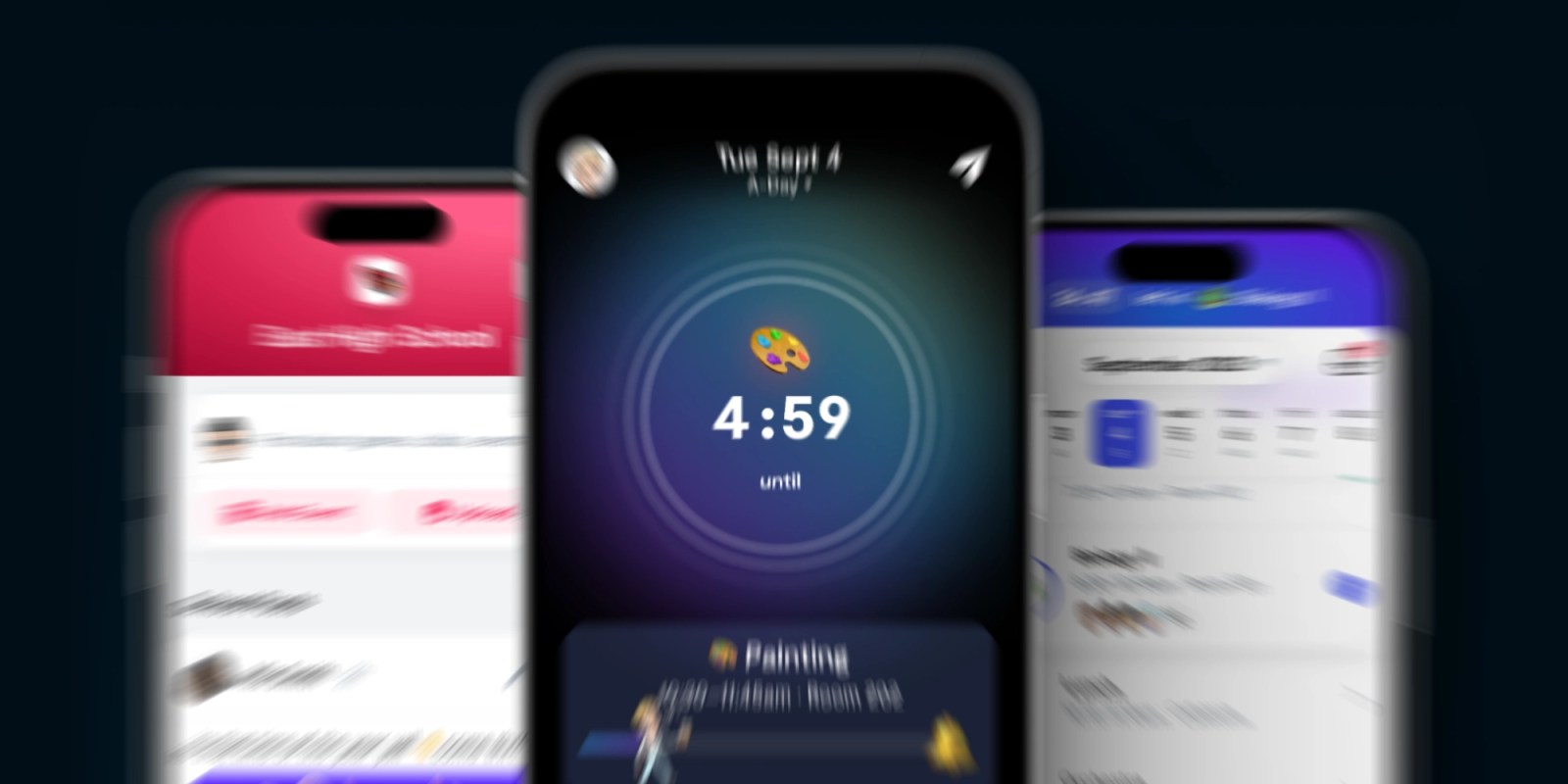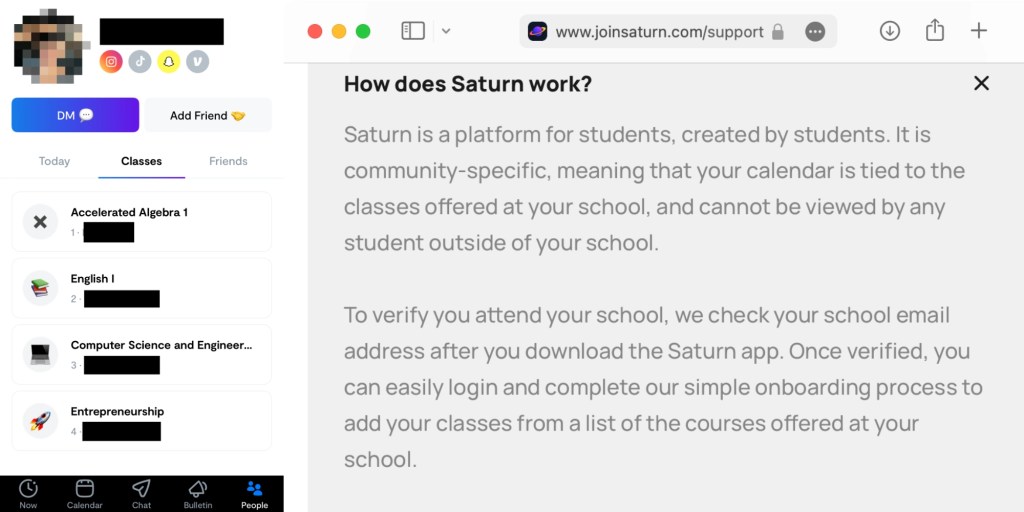
8/14: Saturn has submitted an update to the App Store that could address the most obvious privacy concerns. As you’ll read below, however, we’ll need to compare the words on their blog with how the app actually works.
What if I told you there was a new app that let anyone easily look up names and social media accounts for local teenagers? Creepy much? That’s exactly what a new app called Saturn does. It’s also currently one of the top 15 iPhone apps on the App Store.
Saturn is part calendar, part social network
Saturn bills itself as the solution to the complexity of managing social and academic life in high school. Students can scan a photo of their class schedule, and Saturn uses basic optical character recognition intelligence to create a personal school calendar.
This aspect of Saturn is actually very polished and clever. Unfortunately, Saturn is explicitly targeting high school students, not college attendees. Therefore, the majority of its users will be aged 14 through 18. Privacy should be the foundation of an app meant to only be used by teens.
Saturn claims to protect students
On paper, Saturn says all the things you’d want to hear about only allowing students who verify their status onto the platform.
On its website, Saturn claims that only fellow classmates can view class schedules. They also claim to use school email addresses to confirm users are actually students at the school they’ve selected:
Saturn is a platform for students, created by students. It is community-specific, meaning that your calendar is tied to the classes offered at your school, and cannot be viewed by any student outside of your school
To verify you attend your school, we check your school email address after you download the Saturn app. Once verified, you can easily login and complete our simple onboarding process to add your classes from a list of the courses offered at your school.
The problem is that everything Saturn says it does to verify its users are high school students is bullshit.
Anyone can join and browse Saturn
Anyone can download Saturn, provide a general location, and select a local high school. All anyone needs to view every user from a local high school is a phone number. You can opt out of providing a precise location, and you can decline uploading your contacts to Saturn.
The setup process asks for a name (you can make it up), a birthday (you can fake it), and a graduating class (this just lists your high school level). If you provide answers to these three prompts, you’re free to browse Saturn as if you were a student.
At this point, you have total access to every user associated with the high school in under five minutes Information that can be shared on Saturn includes:
- student names
- account photos
- class times and teachers
- links to Instagram, TikTok, Snapchat, and Venmo accounts
- the ability to send private messages
No actual identify verification required.

Saturn’s risk for teens
As of August 9, Saturn’s website highlights “law enforcement guidelines” for its “safe and secure online space for students” as a sort of legal disclaimer or reassurance about its privacy policy.
The problem is that anyone could easily exploit the data freely available on the platform in the real world or on another platform. If a Saturn user’s information was used maliciously, Saturn would never be directly linked to the incident.
At the same time, Saturn is telling its teenage users that only fellow students at their high school can see what they share. It’s like a giant contacts list of teenagers masquerading as a private journal.
Is Saturn lying to make its student users feel safe? Are they intentionally misleading everyone until they can actually provide the verification process they claim to have? As Saturn climbs the App Store charts, should Apple take notice? Share your thoughts in the comments.
More
- App Danger Project warns parents of child exploitation apps
- Apple expanding Communication Safety in Messages for kids to six new countries – 9to5Mac
- New Apple privacy features; how Apple will protect us from AI
- Facebook Messenger parental controls expanded to teens
FTC: We use income earning auto affiliate links. More.





Comments